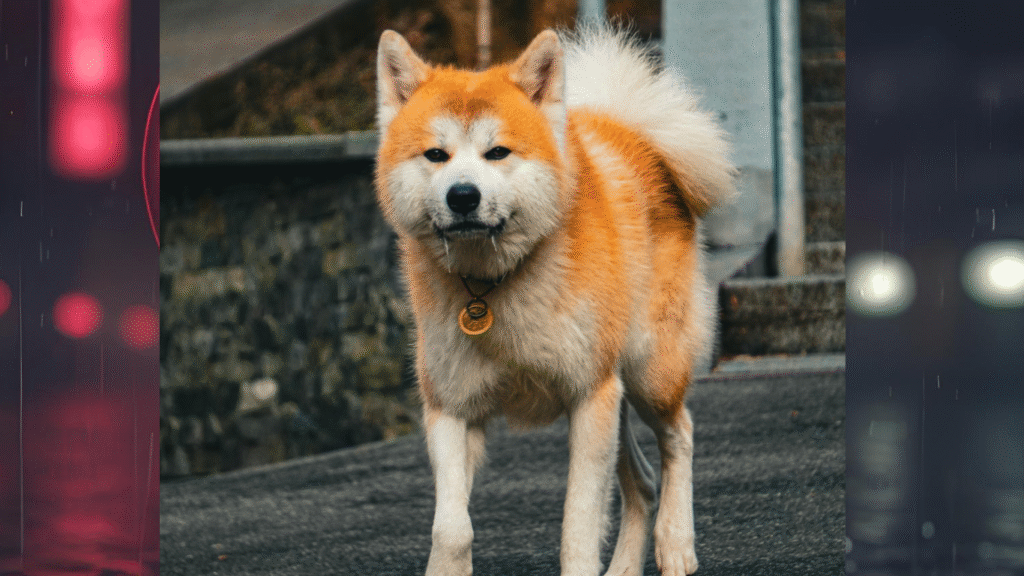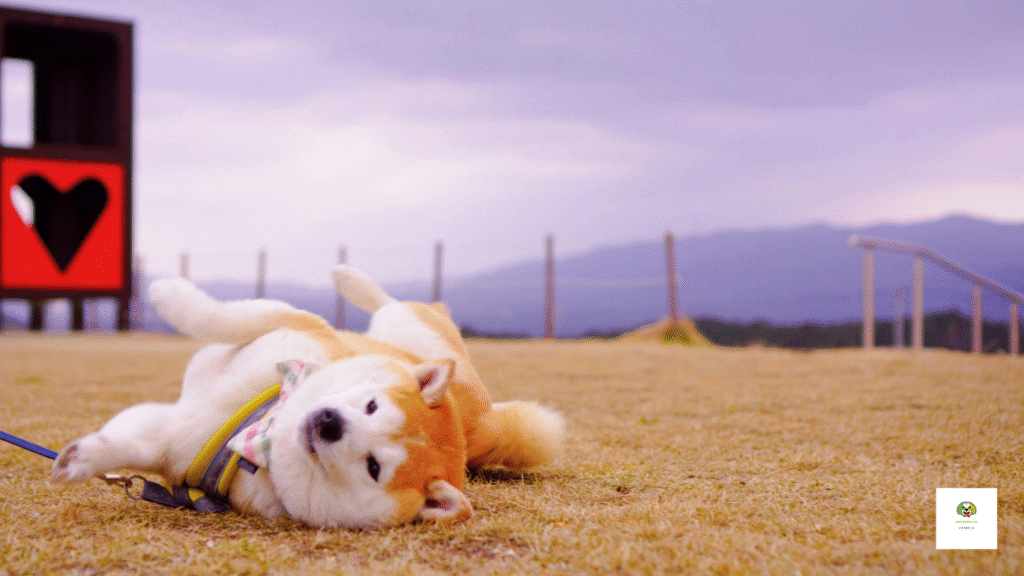If you are a dog lover, the question “Akita is a breed of dog from which country?” must have come to your mind. Akita is a very beautiful, strong and intelligent breed that looks as royal as its history and culture are deep.
This breed originated in Japan and it is considered a symbol of tradition, respect and loyalty there. In today’s world, Akita is not just a pet dog, but has become an example of emotional attachment and human relationships.
In this blog, we will know which dog breed Akita is from which country, interesting facts about its history, the specialties of this breed, and what is the reason why this breed is making a place in the hearts of people around the world.If you are looking for a dog that is not only beautiful but also intelligent and loyal—then the story of Akita can be special for you.
History of the Akita Dog
The history of the Akita dog is linked to the ancient traditions of Japan, where this breed is considered a symbol of honor, loyalty and courage. Its origin is believed to be from the Akita province of Japan, where it was trained for hunting and protection.
In old times it was raised only by royal families and feudal warriors. Akita is known not only for its strong body but also for its calm and loyal nature. Over time, this breed became popular all over the world and today it has become a beloved family pet.
Which country is akita from? know its homeland
The Akita is a famous Japanese dog breed that has its roots in the Akita Prefecture on Japan’s Honshu Island. The breed is known for its courageous, loyal, and calm nature. Historically, they were used for hunting and for protecting royal families.

In Japan, the Akita is considered a symbol of honor and good luck—they are often gifted to newborns and the sick as a good luck charm. Their dense double coat and sturdy build make them comfortable even in cold climates. In fact, the Akita is a living embodiment of Japan’s heritage and culture.
Akita: A faithful companion steeped in japanese tradition
The Akita dog is not just a pet, but a living symbol of Japan’s cultural heritage. Its loyalty, courage and dignity have earned it a special place in Japanese society. For centuries, the breed has been associated with royalty and warriors, where it was considered a symbol of honor and protection.
The Akita is also called the “epitome of loyalty”, and the true story of Hachiko is one of the most emotional examples of this. In Japan, Akita dogs are considered auspicious and figurines depicting them are often gifted to newborns or sick people. Its presence not only enhances the beauty of the home, but also creates a deep emotional connection.
Evolution of the akita breed: changing appearance over time
The Akita dog breed has a royal heritage in Japan that began as powerful and fearless dogs trained for hunting. Over time, its role changed—from royal protection to a beloved family member. The modern Akita is a beautiful blend of tradition and modernity: courageous and loyal, calm, intelligent and loving.
Its appearance is also stronger and more attractive than before. Today’s Akita is not just a dog, but an emotional companion and a respected social creature. This evolution of the breed is not only biological, but also a reflection of cultural changes.
Is the akita the right pet for you?
If you are looking for a dog that is calm, loyal and has a strong bond with its family, the Akita may be the perfect choice. This dog is reserved by nature, especially with strangers, but once trusted, it is extremely protective and loving towards its owner.
The Akita needs proper discipline and social training, as it can be stubborn at times. This breed is usually attached to one owner, so it can be a bit challenging for first-time dog owners. If you have the time, patience and experience, the Akita can prove to be a loyal life partner.
What is the temperament and behavior of Akita
The Akita dog is known for its royal personality and deeply attached nature. It is not only extremely loyal but also confident and calm from within. The Akita loves its family wholeheartedly and especially considers one person as its closest companion.
It is a little cautious towards strangers, but with love and proper training, it becomes an understanding and trustworthy friend. Its gentleness with children and its alertness to protect the house make it a perfect family pet. The Akita needs an owner who understands its nature and can guide it with patience and love.
Is adopting an Akita right for you? Know its benefits and challenges
The Akita is a beautiful and intelligent breed, but it may not be right for everyone to own one. The breed is loyal and protective, making it a great family companion. However, its strong-willed and independent nature can make it challenging to train, especially for first-time pet owners.
| Feature | Details |
|---|---|
| Breed Name | Akita |
| Origin Country |  Japan Japan |
| Breed Group | Working Dog |
| Size | Large |
| Life Expectancy | 10–15 Years |
| Temperament | Loyal, Brave, Dignified |
| Popular In | Japan, USA, UK |
The Akita requires plenty of exercise and mental stimulation. If you can put in the time, maintain discipline, and understand its temperament, the Akita can bring loyalty and warmth to your life.
How to Care for an Akita Dog: Diet, Exercise & Training Tips
Akitas, known for their majestic stance and loyal nature, are dogs that require special care. A balanced diet, adequate exercise and proper training are essential to keep these powerful and intelligent dogs happy and healthy.
Diet: Choose high-quality, protein-rich dog food for their large size and energy. Feed appropriately at puppy, adult and senior stages. The amount of food depends on age, weight and activity level – avoid overfeeding. Always have fresh water available.
Exercise: Akitas need vigorous exercise (at least 60-90 minutes) daily. Include long walks, jogging, playing or running in a large, secure yard. Mental stimulation (puzzle toys, training sessions) is equally important so they don’t get bored.
Training: Early socialization and consistent, positive reinforcement (reward-based) training are a must. Patience and firm, but never cruel, leadership are a must due to their independent nature and protective instinct. Start teaching basic commands.These key points, along with regular grooming and veterinary checkups, will help your Akita have a long, healthy, and contented life. Remember, their loyalty is rewarded only by your love and attention!

FAQ
Yes, the American Akita originated from Japan. The breed was originally known as “Akita Inu” and was found in the Akita Prefecture of Japan. Later during World War II, some Japanese Akita dogs were brought to the US, where their characteristics were altered to form a separate breed called the “American Akita”. They are stronger, broader faced and more powerful.
If there is a fight between Akita and Rottweiler, it is difficult to say who will win, because both are strong and courageous breeds. Rottweiler has more strength and aggression, while Akita is calm but very agile and loyal. The real victory is only when both of them are raised with love and training. Pet them with understanding and care, not fighting – this is the best way.
The Akita is a loyal and strong breed, but it also has some weaknesses. This breed is often stubborn and independent, which can make training difficult. If the Akita is not taught to socialize with others properly from childhood, it can behave a little aggressively towards strangers. In addition, this breed can suffer from hip dysplasia, hypothyroidism, and skin problems.
In fact, no dog can live up to 100 years. Generally, the lifespan of dogs depends on their breed, health and care. Small breed dogs like Chihuahua or Pomeranian can live for about 11 to 19 years, while large breed dogs have a lifespan of 9 to 15 years. Scientifically, there is no dog that can live up to 100 years like humans.

